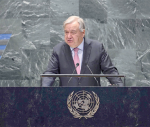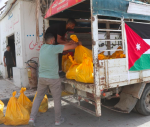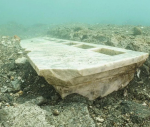You are here
In the wake of Gaza war: Jordan’s strategic narrative amidst regional challenges
Nov 26,2023 - Last updated at Nov 26,2023
Recent regional developments, particularly the war in Gaza and its implications for Jordan, underscore the urgent need to reassess public policies and communication strategies. Establishing a national narrative has become paramount for Jordan in the ongoing aftermath of the Gaza conflict. It is crucial for the government to address prevailing sentiments of anger and frustration, guiding the public through these challenging times. By honing a distinct narrative, the government can heighten awareness regarding the responsibilities and difficulties every Jordanian must confront.
The potential risk of external actors shaping the national narrative is a cause for concern. For instance, when leaders of Hamas directly address the Jordanian audience, as is frequent during the Gaza conflict, there is a risk of creating an overlap with the government and political system. Preserving Jordan's own narrative is vital to safeguard the interests of its people and political system.
Jordan's priorities should encompass rebuilding trust with its citizens and establishing an open, transparent channel of dialogue, a crucial step towards a more credible approach to its citizens. Consequently, a communication strategy focused on quality messaging is imperative, coupled with the government's need to be perceived as positive and credible. Crafting a new narrative enables Jordan to protect its stability and prevent external actors from influencing its internal dynamics.
The array of risks facing Jordan necessitates a comprehensive approach. With escalating risks in the Red Sea, Syria and Iraq, Jordan must swiftly construct a robust government capable of addressing multiple crises, spanning security, socio-economic, stability and political challenges.
Jordan's unique connection to the Palestinian Territories, in terms of demography, geography and security, mandates the adoption of a comprehensive political strategy. Ensuring a presence at any future negotiation table and in regional political reforms is crucial. Strengthening relations with allies, particularly the US, and aligning political visions will empower Jordan to play a significant role in the future.
Jordan's exceptional support to Palestinians in Gaza and the West Bank offers it a privileged position among other Arab countries. The provision of field hospitals, humanitarian aid and diplomatic pressure demonstrates Jordan's commitment. Capitalising on these efforts and positioning Jordan as an indispensable player in finding a political solution for the Palestinian crisis is crucial. By connecting with the region, adopting a comprehensive approach with the US, and convincing allies, and even Israel, of the importance of its role, Jordan can secure a significant presence in shaping the future phase of resolving Palestinian issues.
Swift action is required by Jordan to prevent the manipulation and mobilisation of its people, mitigating the risk of fuelling internal instability. Building a robust government capable of facing these challenges and constructing a convincing narrative to unite and engage Jordanians is of paramount importance. By filling the vacuum with a realistic and convincing approach, Jordan can shield itself from being targeted as a place to export the Palestinian conflict and maintain stability. Fundamental political changes in narrative and approach are imperative for the upcoming phase.














Add new comment